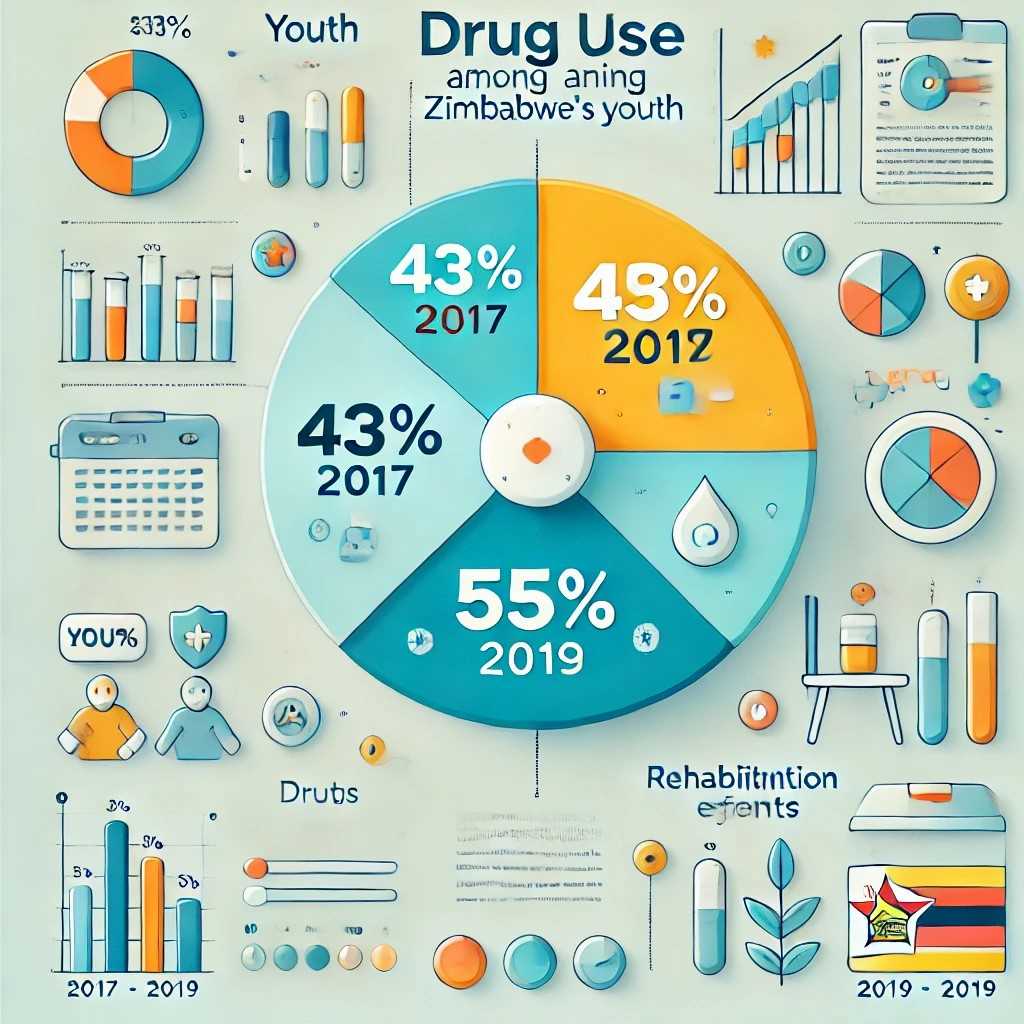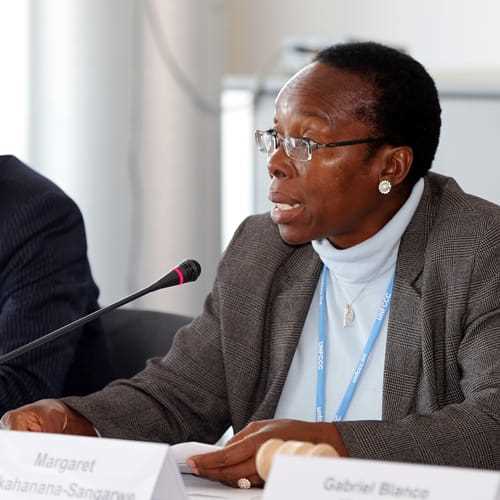
Philemon Jambaya
Zim Now Editor
Zimbabwe's youth are facing a devastating reality: a growing drug abuse problem that's threatening their health, well-being, and futures. The statistics are alarming, and the stories are heartbreaking.
According to the Zimbabwe Civil Liberties and Drugs Network , alarming statistics reveal that more than 43% of adolescents and young adults used drugs in 2017 alone. By 2018, this percentage had risen to nearly 45% and continued to increase to above 57% by 2019 (Maraire & Chethiyar, 2020) .
"I started taking codeine to fit in with my friends," says 19-year-old Tendai, who wished to remain anonymous. "But soon, I couldn't stop. I'd take it to calm my nerves, to feel normal. Now, I'm struggling to quit."
Tendai's story is not unique. According to UNICEF, substance abuse is one of the most severe public health and socio-pathological threats facing adolescents and young people in Zimbabwe.
The most commonly abused drugs in Zimbabwe include codeine, methamphetamine (crystal meth), glue, bronclee, solvents, chlorpromazine, mangemba, cane spirit, cocaine, and cannabis/marijuana.
Related Stories
"Meth is everywhere," says 22-year-old Ruvimbo, a university student. "People take it to stay awake, to study, to party. But it's destroying lives. I've seen friends lose their jobs, their families, their sanity."
Experts point to several factors contributing to the crisis, including peer pressure, lack of awareness, easy access to substances, poverty, unemployment, and mental health issues.
"We're bored, we're stressed, we're desperate," says 20-year-old Kudzai, a high school student. "Drugs seem like an escape, but they're a trap. We need help, we need support, we need alternatives."
Substance abuse can lead to addiction, stress, depression, anxiety, suicide, psychosis, and cardiovascular and neurological disorders.
"I tried to quit, but the withdrawal symptoms were unbearable," Tendai admits. "I felt like I was going crazy. That's when I realized I needed help."
The Zimbabwean government, along with organizations like UNICEF, is working to address the root causes of drug abuse and provide support to those affected.
"We're implementing programs to educate young people about the dangers of substance abuse," says Marvelous Jena Director of Youth Against Drugs"We're also expanding access to counseling and rehabilitation services."
Young people are speaking out, sharing their stories, and seeking help.
"I'm in recovery now," says Ruvimbo. "It's tough, but I'm determined to stay clean. I want to help others, to show them there's a way out."




















Leave Comments